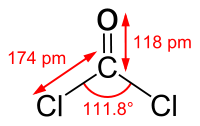I recently made the mistake of visiting an alternate history forum. For me, what-if discussions with other nerds are something that makes time evaporate more quickly than nail polish remover. Even so, one particular discussion intrigued me enough that I decided to think about it in detail.
The scenario went something along the lines of this: suddenly, Alien Space Bats limit the power that can be outputted from gas expansions, and prevent the use and application of electricity while still retaining such natural phenomena as lightning. This is a contention similar to the premise behind S.M. Stirling's Emberverse, which is probably why it was being discussed. I like that series, if it isn't obvious.
Naturally, in such a world the level of technology would essentially be plunged back to the high middle ages, with an admixture of modern ideas such as germ theory, chemistry, and precision engineering. One thing that kept bothering me, though, was that people kept making outlandish claims about what chemistry would work in such an environment. Duty calls.
I'll spare you the discussion of what in particular was wrong with these claims. I will, however, bring one up because it makes for an interesting discussion of the dependency of much of the modern chemical industry on a few select feedstocks and processes.
The claim I want to discuss is that with modern knowledge but a high middle age level of technology, warfare would make heavy use of chemical agents, such as the relatively simple WWI gases chemical mustard, chlorine, or phosgene. For reference, the molecules phosgene and sulfur mustard look like the following:
That either of these would be producible in a no-electricity environment is trivially untrue because there is an important component missing. Without knowledge or means to conduct electricity, large parts of the historical chemical industry become impossible. Put simply, one needs electrochemistry - using electrical currents to run reduction-oxidation (redox) reactions in reverse. At its simplest, this means the chlor-alkali process, for producing elemental chlorine, for example. Theoretically, once chlorine was obtained, one might be able to make phosgene by burning charcoal in chlorine and air. However, without the ability to send current between an anode and a cathode, you cannot make chlorine, thus both chlorine and phosgene chemical warfare is impossible.
Sulfur mustard is still more impossible because it's a sulfur organochlorine. Sulfur presents a problem, because getting sulfur from the Claus process via sour oil and gas is obviously not going to work. Barring the literal gathering of brimstone from active volcanos and hot springs, the only practical way to get sulfur is to roast pyrite. It's a fairly common mineral, but obtaining elemental sulfur requires roasting in an evacuated chamber. Let's not even go into the requirement for ethylene.
Either way, it seems that people's understanding of chemistry doesn't realize quite how fundamentally some of our chemistry processes depend on innovations from the late 19th and early 20th centuries like the harnessing of electrical currents. Chlor-alkali for mass production of strong base replaced millennia of producing via destructive dry distillation of minerals. Similarly, the wide availability of almost all halogen gases is almost entirely due to electrochemistry. Hydrocarbon building blocks used for precision syntheses, like ethylene, are due to the invention of catalysts and materials that can run at very high temperatures. Prior to small building-block chemicals from petroleum, people had to depend on heavy molecules from coal tar, glycerin from soap, or natural chemicals like turpentine or rosin. Take that away, and chemistry gets a lot more challenging and, well, medieval.
